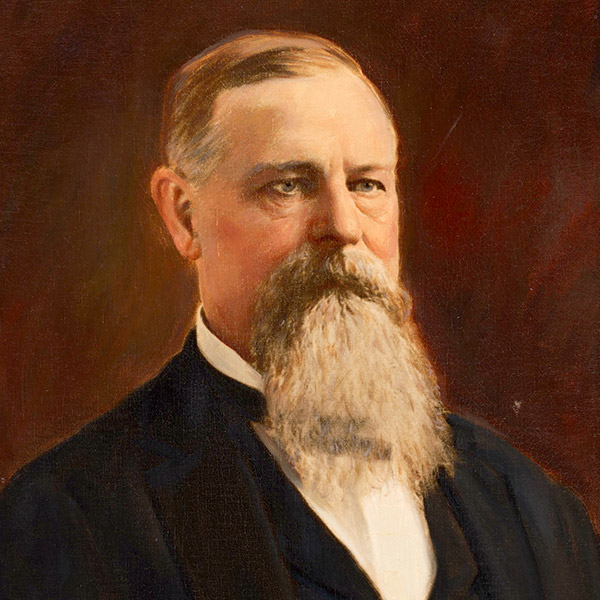Reddin Andrews
Baylor President, 1885-1886

With the death of Crane in February 1885, the mantle of leadership went to Reddin Andrews, the first native Texan and Baylor alumnus to become president of the University. Pastor of the Baptist church in Tyler, Andrews was born at LaGrange in 1848 and was orphaned at age four. He fought for the Confederacy and entered Baylor at age 19, living in the home of President Crane during his student years.
Graduating in 1871, he pastored several churches before returning to Baylor four years later as a vice president. Sometime later, in a letter to a friend he recounted his responsibilities and said that "I preach eight times every month and teach school five long days in every week. I am my own woodman, fireman and waterman. I have been assistant cook part of the time and assistant nurse all the time. I have looked after household affairs and have been, in large measure, my own errand boy."
In March 1885 when Andrews was inaugurated, he understood that he was to hold the job only until the Baptists of the state could agree on ways to unify the various conventions, organizations, and promotional bodies and, of course, decide the fate of Baylor University and Waco University along with the Baylor Female College which separated from Baylor University in 1866.
Over the next few months proposals related to the removal of both Baylor institutions from Independence were systematically submitted for consideration to the appropriate Baptist bodies Along with fragmented dialogue on this matter by different organizations, most people interested in the future of Baylor realized that hard decisions had to be made to address the immediate needs of the institution. The trustees realized the difficulty of selecting a new president, especially under the current economic difficulties and unsure future that loomed on the horizon for Baylor. They, therefore, sought to convince Andrews to direct the operations a while longer. They gave him permission to keep all tuition fees, incidental taxes, library fees, and all interest accruing from the endowment fund, the sum not to exceed $2,000. Out of these sources, however, he was to pay all salaries, and the school's operational expenses.
After considerable thought Andrews put the cause of Baylor ahead of his own desires and agreed to remain at the helm of what appeared to be a foundering ship. Unfortunately, poor conditions at the University persisted and immediately after the fall term, Andrews left to become vice president at Waco University perhaps anticipating the unification of that institution with Baylor. He was accused of leaving Baylor without giving proper notice, but he explained, "A real sense of depression caught me in its grasp. I said little, suffered much and did all that I could in the face of a forlorn hope." Some accused him of purposefully sabotaging the foundation of support and thus destroying the efforts of those who called for Baylor to remain at Independence. They claimed that he was in conspiracy with the forces promoting Waco University as the chief Texas Baptist school. Andrews justified his actions by saying that "new conditions render new demands imperative and every generation has its peculiar idea of expediency and necessity." According to a prominent Baptist historian, "The man didn't live who could have turned back the rising tide for a change of location for Baylor."
